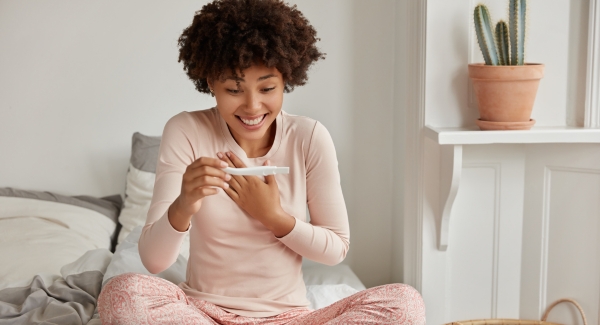
Wondering if you might be pregnant? A home pregnancy test is a quick way to find out, but are the results always reliable? Let’s answer some common questions to help you understand how these tests work and when you can trust the outcome.
When should I take a home pregnancy test?
Some tests claim to detect pregnancy as soon as you miss your period, or even before! However, for the most accurate results, it’s better to take the test after the first day of your missed period. Why? Because once a fertilized egg attaches to your uterus, your body starts producing a hormone called HCG (human chorionic gonadotropin). HCG can be detected in your urine, and the longer you wait, the more likely it is that your test will pick up on it.
Keep in mind that your body doesn’t always work like clockwork. If you have an irregular menstrual cycle or ovulate at different times each month, that can affect how soon a home pregnancy test will work for you.
How do I use a home pregnancy test?
Using a home pregnancy test is pretty straightforward. You either:
- Pee directly on the test stick.
- Dip it in a container of urine.
- Use a dropper to place urine on the test.
After a few minutes, you’ll see the result: whether it’s a plus or minus sign, the words “pregnant” or “not pregnant,” or some other symbol. Be sure to follow the instructions, including how long to wait before checking the result. Also, look for the control line to confirm the test is working.
Pro tip: Always check the expiration date and follow the instructions closely for the most accurate results.
How accurate are home pregnancy tests?
Most home pregnancy tests claim to be 99% accurate, but that can depend on when you take the test. If you get a negative result but still think you’re pregnant, wait a few days or a week and test again.
Can medicine affect my results?
If you’re on fertility treatments or taking any medications that contain HCG, this could mess with your results. However, most common meds, like antibiotics or birth control, won’t affect your test.
What if I get a positive result but I’m not pregnant?
Although rare, it is possible to get a false-positive result. This might happen if:
- You had a very early pregnancy loss (before you even knew you were pregnant).
- You’re taking fertility medication with HCG.
- You’re going through menopause or have other health issues related to your ovaries.
What if I get a negative result but I am pregnant?
This is known as a false negative, and it can happen if:
- You took the test too early. For best results, wait until after your missed period.
- You checked the test too soon. Set a timer and wait for the full time mentioned in the instructions.
- You took the test later in the day. Morning urine is more concentrated, which makes it easier to detect HCG.
What should I do next?
- Positive result? Make an appointment with your healthcare provider to confirm the pregnancy. They may suggest a blood test or ultrasound.
- Negative result but no period? Wait a few days and test again or reach out to your healthcare provider if you’re still unsure.



